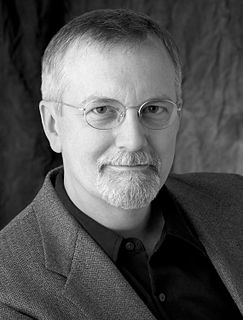A Quote by H. P. Lovecraft
Indeed, there is much in pure humanitarian culture, as opposed to rigid scientific training, which encourages absorption in the affairs of mankind, and more or less indifference to the unfathomed abysses of star-strown space that yawn interminably about this terrestrial grain of dust.
Related Quotes
We think of the 1950s as an oppressive time in the culture, and indeed it was, but it was also in many ways a more secular moment, and one in which great scientific achievements flourished. I don't want to get too gauzy about this, but there was much more respect for science as a necessary part of society.
In this model, the sun is a very tiny speck of dust indeed-a speck less than a three-thousandth of an inch in diameter ... Think of the sun as something less than a speck of dust in a vast city, of the earth as less than a millionth part of such a speck of dust, and we have perhaps as vivid a picture as the mind can really grasp of the relation of our home in space to the rest of the universe.
In terms of the film itself, there was nothing much very new about 'Star Wars.' 'Star Wars' was a trailblazer for the kind of monumentalist pastiche which has become standard in a homogeneous Hollywood blockbuster culture that, perhaps more than any other film, 'Star Wars' played a role in inventing.
On the whole, books are indeed less finite than ourselves. Even the worst among them outlast their authors - mainly because they occupy a smaller amount of physical space than those who penned them. Often they sit on the shelves absorbing dust long after the writer himself has turned into a handful of dust.
For example, there are numbers of chemists who occupy themselves exclusively with the study of dyestuffs. They discover facts that are useful to scientific chemistry; but they do not rank as genuine scientific men. The genuine scientific chemist cares just as much to learn about erbium-the extreme rarity of which renders it commercially unimportant-as he does about iron. He is more eager to learn about erbium if the knowledge of it would do more to complete his conception of the Periodic Law, which expresses the mutual relations of the elements.
Coming from a sort of very rigid European type of training to this culture which is just a little more open - a lot more open, and kind of curious, and asking different sorts of questions.Because the problem for me was that the European modernist movement in the '70s was all about right or wrong. Some things were right and you were dealing with the truth, as it were, and then some things were wrong and therefore not allowed.
Here in the U.S., culture is not that delicious panacea which we Europeans consume in a sacramental mental space and which has its own special columns in the newspapers - and in people's minds. Culture is space, speed, cinema, technology. This culture is authentic, if anything can be said to be authentic.






































